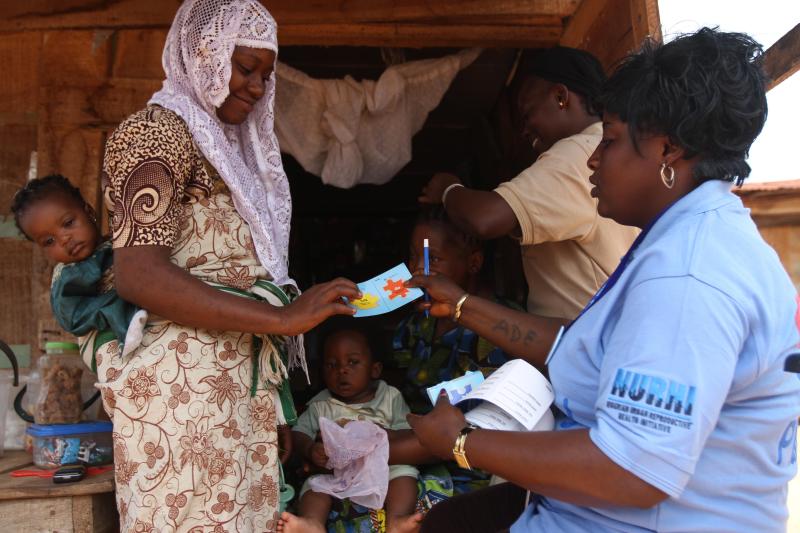Where We Work
See our interactive map


This post originally appeared on K4Health. Photo courtesy of Photoshare.In 2007, I visited the Centre de Sante in Mukono, Rwanda. Staff enthusiastically gave me a tour of the facility, which had recently undergone renovations to partitioned private rooms for family planning counseling.
The facility also had a variety of family planning commodities available, including pills, condoms, and injectables. It was remarkable to see staff so motivated to serve their clients and even more so to see the waiting room filled with women and men waiting for family planning services.
This sunny day seven years ago had a noteworthy impact on my career in global health. It highlighted the importance of providing comprehensive family planning services to clients, especially in rural areas, and of having a motivated and well-trained health workforce to deliver those services.
The absence of data and a weak culture of data use create challenges.
In the years since, I have committed to supporting countries in addressing health workforce challenges, and particularly to improving family planning services.
HRH challenges
Human resources for health (HRH) is one of the six building blocks of the World Health Organization’s Health Systems Framework. Along with infrastructure, health commodities, logistics, financing, progress tracking, and service delivery, human resources are essential to providing health services—including family planning.
But there are a number of challenges:
The absence of data and a weak culture of data use create additional challenges.
Despite all of this, many countries have used effective, efficient, innovative strategies to ensure that even hard-to-reach populations have access to health services.
Improvements to HRH can benefit family planning.
They’ve made improvements to pre-service and in-service training of health workers; created policies to support task-shifting, allowing community health workers to assume some service delivery responsibilities; and made greater investments in HRH strategies. Improvements to HRH can benefit family planning. One example is in Kenya, where the Kenya Medical Training College at Kitui has become a national Center of Excellence for Family Planning and Reproductive Health.
At Kitui, a new skills lab coupled with eLearning takes center stage, transforming education for students and teaching staff and improving the learning environment for family planning.
How K4Health can support the family planning health workforce
K4Health is working hard to give health workers and other family planning professionals around the world access to the knowledge and tools they need to deliver high-quality counseling and services. Our page on the Family Planning Workforce links users to a range of relevant, state-of-the-art knowledge management products to meet diverse information needs.
We know that health workers are necessary to deliver comprehensive family planning services.
Encouraged by innovative investments such as the KMTCT Kitui Center of Excellence, I am hopeful we will can improve training, productivity, and support to the family planning health workforce and help improve family planning services.
I also hope we'll see more health workers who are as enthusiastic about family planning as those at the Centre de Sante in Mukono—and more waiting rooms filled with clients on their way to efficient, informed, compassionate services.
Get the latest updates from the blog and eNews




